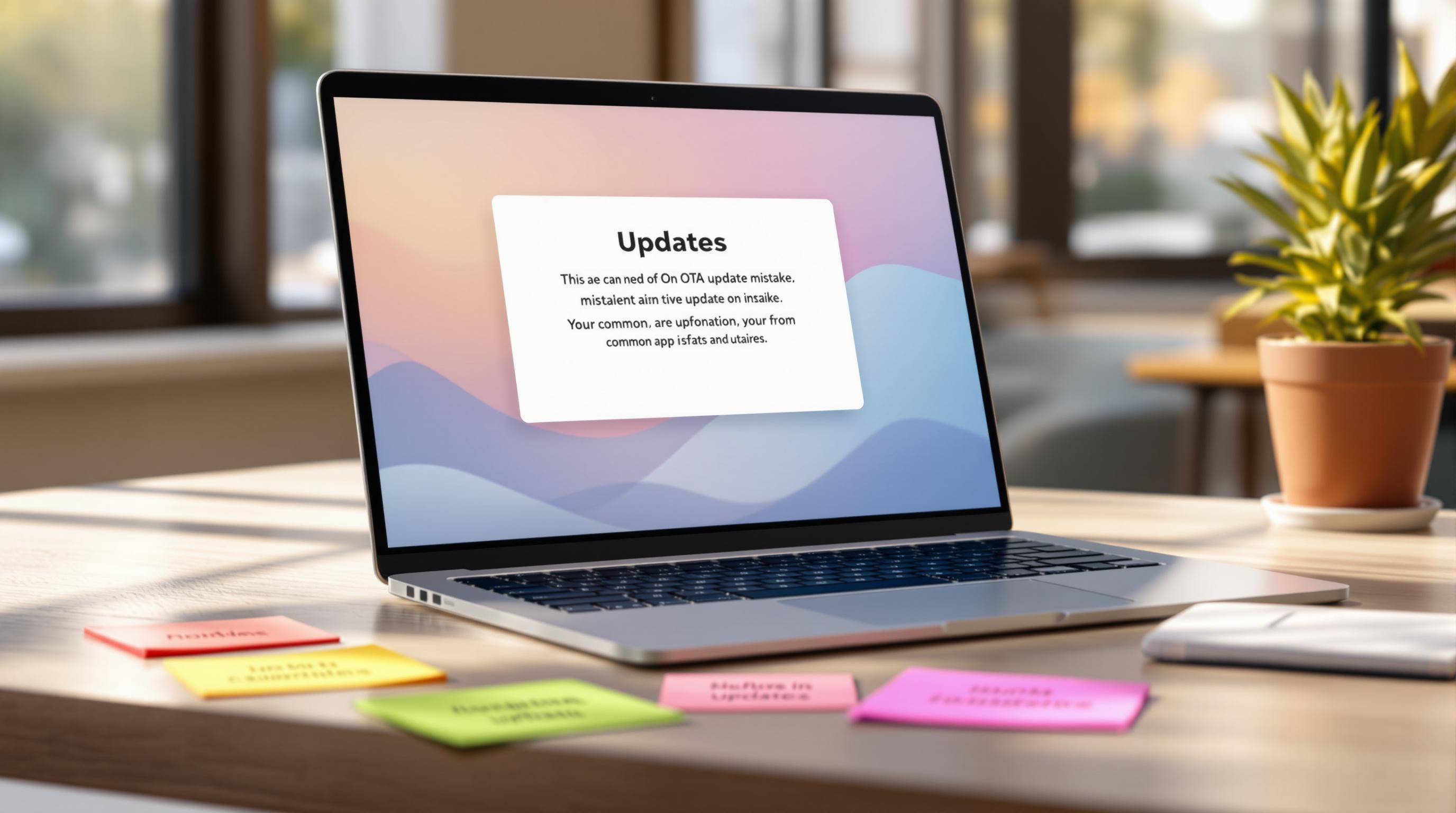China’s Cybersecurity Law (CSL) requires app developers to follow strict rules for handling user data, especially when dealing with Chinese users. Here’s what you need to know:
- Data Localization: Store personal and sensitive data on servers within China.
- Security Standards: Use encryption, multi-factor authentication, and conduct regular security checks.
- Cross-Border Data Transfers: Require explicit regulatory approval for moving data outside China.
- Mandatory Assessments: Apps must pass technical security reviews, data protection impact assessments, and network security checks.
- Consequences of Non-Compliance: Fines, app removals, service suspensions, and reputational damage.
To stay compliant, developers should use tools for encryption, real-time monitoring, and secure updates. Failing to comply can lead to severe penalties, so early preparation is key for success in the Chinese market.
China’s Cybersecurity Law Basics
Main Legal Requirements
China’s Cybersecurity Law outlines specific rules for handling data, directly impacting app developers. Key areas of focus include data localization, security measures, and user privacy protection.
For data localization, developers are required to store personal information - and any data considered crucial to national security or public interest - on servers located within mainland China.
Network operators, including app developers, must follow these security practices:
- Real-name registration systems: Ensure users register with verified identities.
- Multi-factor authentication: Secure access to sensitive information.
- Regular security checks: Conduct vulnerability testing and security assessments.
- Data encryption: Encrypt data during both transmission and storage.
- Backup and recovery: Maintain systems for data backup and recovery.
These requirements shape the way app developers must approach compliance.
Scope for App Developers
The law applies to apps that collect, process, or store data from users in mainland China, regardless of where the developer is located. Here’s what developers need to consider:
Data Processing Requirements:
- Personal and sensitive information must be handled within China.
- Cross-border data transfers require explicit regulatory approval.
- Developers must set up monitoring and auditing systems.
Technical Compliance:
- Apps must allow for quick data export in standardized formats.
- Encryption standards approved by regulators must be followed.
For developers targeting Chinese users, compliance often involves working with local data centers or service providers. Since the law defines “critical data” broadly, developers need to carefully assess all data types their apps handle and ensure adequate protection measures are in place.
Meeting Compliance Standards
Data Storage Rules
To align with legal requirements, establish technical measures that ensure data is stored securely and locally. Sensitive information - such as user profiles, payment details, location data, device identifiers, and analytics - must be stored on servers located within mainland China. For transferring data internationally, secure explicit approval from the Cyberspace Administration of China (CAC). This includes submitting documentation that outlines the types of data, transfer frequency, security measures, and intended use.
Required Security Checks
Before launching in China, you must complete these mandatory security assessments:
-
Technical Security Assessment
This involves a detailed review of the app’s security features, including encryption methods, access controls, and vulnerability testing. The evaluation must be carried out by a CAC-approved testing facility. -
Data Protection Impact Assessment
Developers must detail how personal data is collected, processed, and safeguarded. This includes documenting user consent mechanisms and data retention policies. -
Network Security Review
Apps managing critical infrastructure or sensitive data need an additional network security review. This focuses on server security, data backup systems, emergency response plans, and access controls.
These steps provide the foundation for implementing the technical changes required for compliance.
App Changes Needed
The results of these assessments will highlight the technical updates needed for compliance:
-
User Privacy Controls:
- Clear consent options for data collection
- Detailed privacy settings
- Features to delete accounts and related data
- Transparent policies on data usage
-
Security Features:
- End-to-end encryption for sensitive information
- Multi-factor authentication
- Consistent security updates
- Automated threat detection systems
For apps that require frequent updates, consider integrating compliant update systems. For example, Capgo’s live update solution provides end-to-end encryption and supports instant security patches while meeting both Chinese and international standards.
- Data Management Features:
- Tools for users to export their data
- Audit logs to track data access
- Automated controls for data retention
- Restrictions based on geographic access
All these technical updates must be implemented before submitting your app for regulatory approval. Regular audits are essential to ensure ongoing compliance.
Data & Cybersecurity Compliance in China
Non-Compliance Consequences
Failing to meet compliance standards can lead to serious repercussions, hitting both finances and operations hard.
Penalties for Non-Compliance
Organizations that don’t comply face penalties such as:
- Fines targeting both companies and key executives
- App removals from platforms
- Temporary suspensions of services
- License revocations
- Restrictions on market access
How Enforcement Works
Authorities enforce compliance through several methods:
- Routine audits of technical systems and documentation
- Investigations based on user complaints
- Ongoing technical monitoring to detect:
- Unauthorized data transfers
- Security gaps
- Violations of privacy policies
- Improper access to content
Financial and Operational Costs
Non-compliance comes with hefty costs. Direct expenses include legal fees, technical repairs, and business interruptions. Indirect costs, like damaged reputation, lost business opportunities, and reduced investor trust, can hurt long-term growth. Addressing compliance issues early is often far less expensive than dealing with the fallout later.
Compliance Methods
Technical Tools
Use technical tools that align with China’s security requirements. Key solutions include:
- Data encryption that complies with national standards
- Real-time monitoring tools to track data flows
- Automated compliance software for streamlined processes
- Update management systems with version control capabilities
Platforms like Capgo provide secure update deployment with features such as end-to-end encryption and user assignment. These tools simplify app maintenance while adhering to Chinese regulations.
Daily Compliance Steps
- Morning Checks: Review server logs for any unauthorized access, confirm data storage approvals, and ensure encryption is active.
- Operational Monitoring: Monitor real-time data flows between servers, log all cross-border data transfers, and maintain detailed records of user consent.
- Update Management: Test updates for compliance, document any security changes, and verify that data handling meets the latest standards.
These steps help maintain your app’s compliance with required security measures.
Expert Support
In addition to tools and daily routines, expert advice plays a key role in staying compliant.
Legal Expertise
- Consult cybersecurity lawyers familiar with Chinese regulations.
- Work with local compliance consultants.
- Stay connected with regulatory agencies.
- Partner with certified security assessment providers.
- Use local hosting services for better compliance.
- Seek advice from deployment experts familiar with the Chinese market.
Industry Networks
- Join developer associations for shared insights.
- Attend briefings to stay updated on regulatory changes.
- Engage with local tech communities for support and advice.
Future Changes and Market Access
Expected Law Changes
China is continuing to adjust its cybersecurity regulations, which means app developers need to stay alert for updates regarding data protection and secure data practices. Upcoming guidelines from the MIIT may offer more specifics on areas like data categorization, cross-border data handling, and monitoring protocols. Keeping an eye on official announcements will be essential for staying compliant.
Market Advantages
Preparing early for regulatory changes can make entering the Chinese market smoother. Taking a proactive approach to compliance can speed up app reviews and gain regulatory approval more easily. It also helps avoid expensive last-minute changes and builds user confidence.
Setting up a compliance framework that can handle future adjustments is key to long-term growth. Tools like Capgo’s live update platform allow developers to implement secure updates quickly, ensuring apps stay compliant and competitive as rules change.
Summary
China’s Cybersecurity Law sets strict rules for app developers entering the Chinese market, focusing on data storage, security, and user privacy. To operate successfully, developers need to meet these requirements and ensure compliance.
Key steps for developers include:
- Data Storage: Keep personal and sensitive data on servers located within China.
- Security Measures: Use approved encryption methods and conduct regular security audits.
- Update Management: Deliver updates using compliant, real-time tools.
- Documentation: Maintain detailed records of all data-related practices.
Using tools designed for compliance can simplify this process. Platforms like Capgo offer live update features with end-to-end encryption, helping developers protect their apps while meeting regulatory standards.
Failing to comply can lead to significant penalties. Building strong compliance systems is essential for long-term success in one of the largest digital markets globally. As China’s regulations continue to evolve, developers must stay informed and regularly update their security and data management practices to remain compliant.




